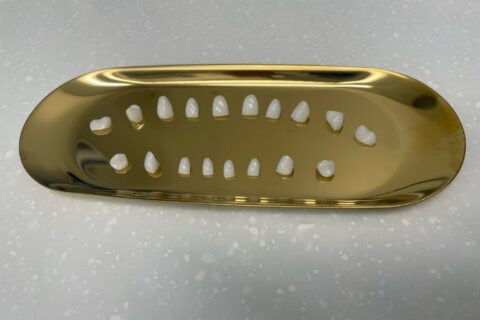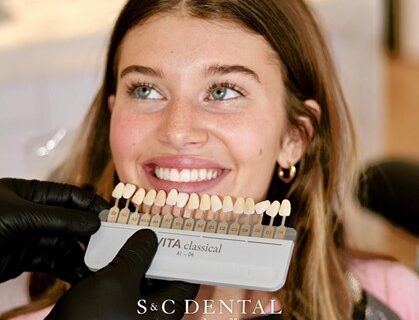Why is My Dental Implant Sensitive to Hot and Cold?
Dental implants are designed to last for years, but it’s important to take proper care of them to ensure they stay in good condition. One issue that some people experience with dental implants is sensitivity to hot and cold foods or beverages. If you’re dealing with this problem, you’re not alone. In this blog post, we’ll explore the causes of dental implant sensitivity and discuss some ways to alleviate the discomfort.
Problems with an Adjacent Tooth
One of the most common reasons for dental implant sensitivity is a problem with an adjacent tooth. If a tooth next to your implant has a cavity, infection, or damage, it can cause referred pain to your implant. This is because the nerves in your teeth are connected. If you experience sensitivity in your dental implant, it’s important to see your dentist to rule out any problems with adjacent teeth.
Dental Implant Failure
Dental implant failure can also cause sensitivity to hot and cold temperatures. This can happen if the implant wasn’t placed correctly or if there is an infection around the implant. If you notice sensitivity in your dental implant, it’s important to see your dentist as soon as possible to identify any problems and take corrective action.
Gum Recession
One of the main causes of sensitivity in dental implants is gum recession. As the gum tissue pulls back from the implant, it reveals the more sensitive root area underneath, which means that hot and cold foods can cause pain. In some cases, gum recession is caused by poor dental hygiene, so it’s important to brush and floss regularly to prevent this problem from occurring.
Nerve Damage
Another cause of sensitivity is nerve damage, which can occur during the implant procedure. In some cases, the implant may be placed too close to a nerve, which can cause pain and sensitivity. If you’re experiencing sensitivity due to nerve damage, your dentist may recommend a numbing agent or other treatment to alleviate the pain.

Healing Process
It’s important to remember that the implant process involves a healing period, during which you may experience some sensitivity. This is normal and should subside as the implant integrates with your jawbone. If you’re experiencing sensitivity during this time, your dentist may recommend a soft food diet to reduce the likelihood of discomfort.
Bruxism
If you grind or clench your teeth at night, you may be unknowingly putting pressure on your dental implant that can cause sensitivity. To alleviate this problem, your dentist may recommend a nightguard or other treatment to help you stop grinding your teeth.
Allergies
In some cases, sensitivity may be caused by an allergy to the materials used in the implant. If you’re experiencing sensitivity that doesn’t seem to be related to any of the above causes, be sure to discuss the possibility of an allergy with your dentist.
What to Do if You Feel Tooth Sensitivity in a Dental Implant?
If you experience sensitivity in your dental implant, there are several things you can do to reduce the discomfort. The first thing you should do is practice good oral hygiene. Brush and floss regularly and use a fluoride toothpaste. This will help reduce inflammation and sensitivity. You can also try using a toothpaste designed for sensitive teeth. These toothpastes contain ingredients that desensitize the teeth and reduce sensitivity.
Another thing you can do is avoid foods and drinks that are too hot or too cold. This includes hot coffee, tea, and soup, as well as ice-cold drinks and ice cream. If you must eat or drink something hot or cold, try slowly sipping the temperature at a comfortable pace.
If the sensitivity persists, you should see your dentist for an evaluation. Your dentist may recommend desensitizing treatments or adjustments to your implant restoration to reduce sensitivity.
Why Choose S&C Dental in Scottsdale, AZ?
Dental implant sensitivity can be uncomfortable, but it’s important to remember that there are many potential causes and solutions. By working with your dentist to identify the root of the problem, you can take steps to alleviate the discomfort and ensure that your implant lasts for years to come. If you’re experiencing sensitivity or any other issues with your dental implant, be sure to schedule an appointment with your dentist to discuss your options. S&C Dental is here to help you maintain a healthy, happy smile! Contact us today at (480) 691-0020 to schedule a consultation!


